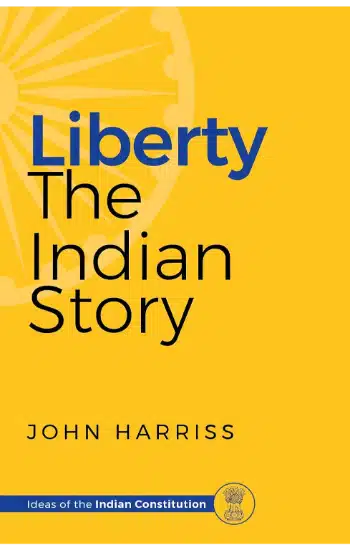
Save: 15%

Save: 15%
Liberty
Publisher:
| Author:
| Language:
| Format:
Publisher:
Author:
Language:
Format:
₹399 ₹339
Save: 15%
In stock
Ships within:
In stock
ISBN:
Page Extent:
Few societies in the 19th and early 20th centuries remained untouched by the radical new idea of liberty, which implied both individual freedom and freedom from despotic rule. The leaders of India’s anti-colonial struggle, in making the concept their own, expanded its purview. But this definition of freedom, understood as socio-economic justice, was found to be fundamentally at odds with its narrower meaning during the debates in the Constituent Assembly. As Professor John Harriss shows in this book, a fierce battle has thus played out ever since the setting up of the Republic between what are referred to as negative and positive freedoms, or, broadly, the guarantees of the Fundamental Rights, and the goals of the Directive Principles of State Policy. The contest has often been one between a judiciary adhering to the Constitution and a Parliament pursuing what Nehru called ‘real freedom’ for the masses. Several Constitutional amendments—the 1st of 1951, the 24th and 25th of 1971, the 42nd of 1976—ended up placing restrictions on individual freedoms as much as they pushed the agenda of social reform. Much worse happened, however, in the name of national security, like the 16th Amendment of 1963, which brought about the Unlawful Activities (Prevention) Act four years later. With the curbing of our individual liberties and leaden steps, at best, towards reform under successive governments, the central constitutional aim of liberty is still a long way off. This monograph lucidly explains the difficult relationship between the Constitution and the Parliament, a relationship that must be clearly understood if we are ever to strike the right balance between the freedom of the individual and ‘real freedom’, as dreamt of by those who founded the Indian republic.
Few societies in the 19th and early 20th centuries remained untouched by the radical new idea of liberty, which implied both individual freedom and freedom from despotic rule. The leaders of India’s anti-colonial struggle, in making the concept their own, expanded its purview. But this definition of freedom, understood as socio-economic justice, was found to be fundamentally at odds with its narrower meaning during the debates in the Constituent Assembly. As Professor John Harriss shows in this book, a fierce battle has thus played out ever since the setting up of the Republic between what are referred to as negative and positive freedoms, or, broadly, the guarantees of the Fundamental Rights, and the goals of the Directive Principles of State Policy. The contest has often been one between a judiciary adhering to the Constitution and a Parliament pursuing what Nehru called ‘real freedom’ for the masses. Several Constitutional amendments—the 1st of 1951, the 24th and 25th of 1971, the 42nd of 1976—ended up placing restrictions on individual freedoms as much as they pushed the agenda of social reform. Much worse happened, however, in the name of national security, like the 16th Amendment of 1963, which brought about the Unlawful Activities (Prevention) Act four years later. With the curbing of our individual liberties and leaden steps, at best, towards reform under successive governments, the central constitutional aim of liberty is still a long way off. This monograph lucidly explains the difficult relationship between the Constitution and the Parliament, a relationship that must be clearly understood if we are ever to strike the right balance between the freedom of the individual and ‘real freedom’, as dreamt of by those who founded the Indian republic.
About Author
Reviews
There are no reviews yet.
Related products
Identity & Survival: Sikh Militancy in India 1978-1993
Save: 20%
The RSS: 100 Years of Service, Dedication and Nation Building
Save: 15%
No Land s People: The Untold Story of Assam s NRC Crisis
Save: 67%
Fallout: Power, Intrigue And Political Upheaval In Pakistan
Save: 15%
The Republic Relearnt: Renewing Indian Democracy 1947-2024
Save: 25%
RELATED PRODUCTS
The Republic Relearnt: Renewing Indian Democracy 1947-2024
Save: 25%
Fallout: Power, Intrigue And Political Upheaval In Pakistan
Save: 15%
The RSS: 100 Years of Service, Dedication and Nation Building
Save: 15%



Reviews
There are no reviews yet.